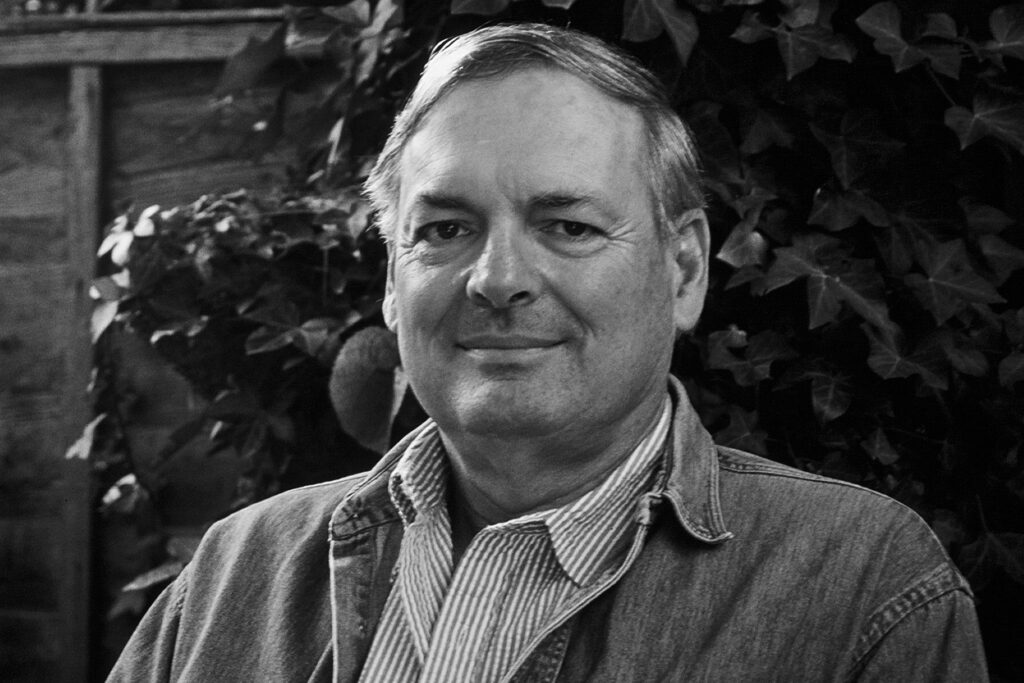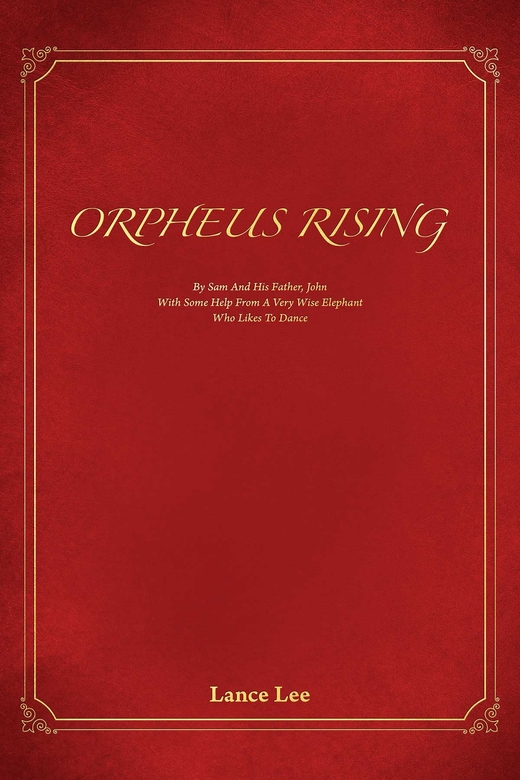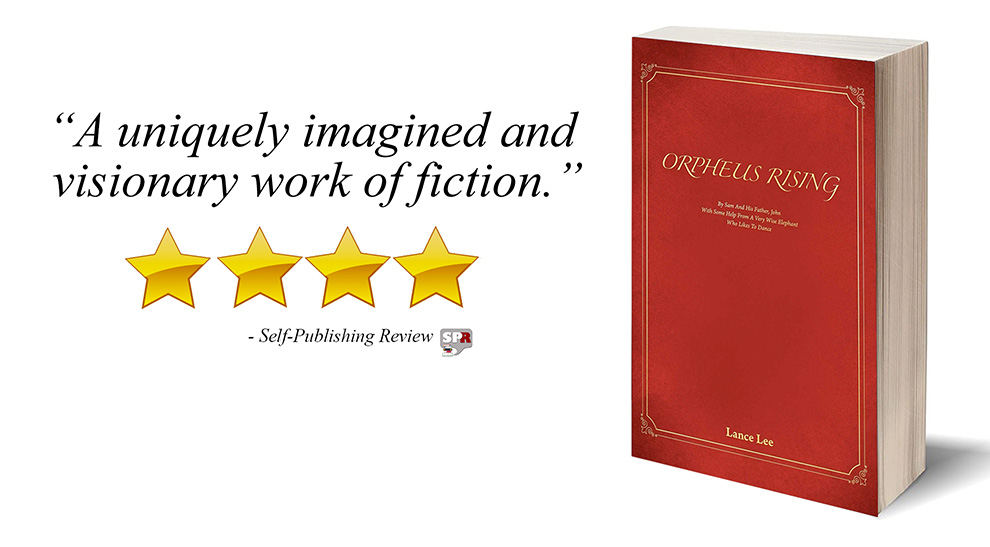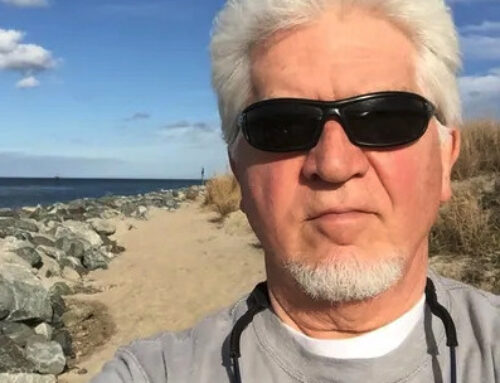
He has also published The Death and Life of Drama and A Poetics for Screenwriters, plus plays and a novel, Second Chances. A past Creative Writing Fellow of the National Endowment for the Arts, his home is in Los Angeles although he spends several months annually with his family in London. He was instrumental in forming the State Park system in the Santa Monica Mountains.
Tell us about your book.
Orpheus Rising is a middle grade epic fantasy quest that is a retelling of the classic Orpheus myth, albeit in a children’s book contemporary format and with a successful outcome. That said: I don’t write anything for particular age categories – my imagination works in its own, idiosyncratic ways, and only once a work is done do I look for whatever bracket in which it might fit, if that’s at all relevant. Although Orpheus Rising fits in the middle grade category because its hero is 10 going on 11, I really wrote it for all ages within the constraints of such a hero’s imagination. I believe a writer must follow his inspiration with integrity wherever that takes him or her, with it understood you aren’t being arbitrary but are well read in the field you are writing in, too.
Why did you choose to self-publish?
My longtime editor at the then Birch Brook Press in upper New York had a stroke, and closed his press. I could have gone through a firm like iUniverse, which I used for my previous book, Elemental Natures, my selected poetry, but after dealing with them I preferred to go ahead myself through IngramSpark where I have complete control over all aspects of the publication. I used the services of Kate Cooper (Leopard Website Design) for the intricacies of text/cover formatting and preparation, and could trust my own experience to function as my own editor. IngramSpark provides printing, circulation, worldwide distribution, and crucially, accounting.
Yes. There’s a learning curve – and a lot of work you must do yourself in place of a publishing firm doing these things for you, like: submitting for reviews, advertising, as well as all the elements of book preparation, design, and publication. But, frankly, it has been fun.
What do you think are the main pitfalls for indie writers?
Isolation. Not seeking expert help where you lack a skill yourself, like, say, editing. Not taking the time to reach out to useful elements of social media, bloggers, advance reviewers. Stinting expense, which means stinting your project. Orpheus Rising required an illustrator, although far from a picture book, and I searched out and paid for an artist of my choice, as I have done on another children’s book I am presently working on. Lacking sheer stick-to-it-ness. Use one of the many publishing packages if you’re not ready to face these things yourself.
As a writer, what is your schedule? How do you get the job done?
Ah, well… On some projects I have been a morning person. Mysteriously, on others, I have been an afternoon person. Rarely, a night owl. It varies as you can see project by project. I have had to work in the kitchen surrounded by noise: I have had to work in absolute silence. Hemingway with a prior career as a journalist may have set himself so many words a day: I have never been able to work with such an artificial constraint. You have to find your own way, project by project, and stick to it. Once underway, the work generates its own time demands and obsessiveness. One ‘rule’ I have found to be true is that we each of us seem to be good for about four hours of really intense creative work: after that, it’s wasted energy, and you need to turn to something else. Which leads into—
How do you deal with writer’s block?
—dealing with the gaps between work. Much of my time has been spent writing poetry, and earlier, plays. There are occasional dry spells. For instance, after publishing a volume of poetry, the following year is often quite dry. Earlier in my career, these periods worried me: how will I ever write a poem (play) (novel) (story) again? Doing so seemed incomprehensible. How had I done one of these before? It seemed a mysterious, lost skill. In time I learned to trust myself more, as invariably in my case the quiet periods weren’t barren but quietly fertile as somewhere within I sensed my way towards a different thread of experience/story/poems to explore. Inevitably some quite casual or unexpected experience or insight, even a movement of music, would trigger the next burst of activity.
Tell us about the genre you wrote in, and why you chose to write this sort of book.
I wrote an epic fantasy, a quest story, within the framework of a 10 going on 11-year-old’s imagination, combining a realism of motivation and relationships with fantastic adventures and an animal spirit guide — or a spirit guide in an imagined animal shape. In an earlier novel (Second Chances), one based on a real incident, the lead character was a similarly aged, precocious girl: I seem to have a feel for such youthful characters, although I’ve dealt with others as far from these as Rasputin or the last fox in Los Angeles.
Orpheus Rising wasn’t ‘chosen’ and planned. I found myself thinking about the classic Orpheus myth and one day imagined my hero, Sam, in his room, with three hanging figures, a dancing elephant on a trapeze, a large schooner, and a sea dragon with a too-large head. These turned out to be predictive, and once I put it all, in my mind, in a context of a loss to be undone, writing was more a case of following the story than making it up, as I pursued it day by day.
I should also add it took decades to write. An early draft, much liked by friends, sat idle for years. One day I took it up again, and fleshed it out. Then it sat again. Another day I took it out and streamlined it. Then it sat again. This pattern went on for a long time as I tried to get the right balance for the different strands of the story. Finally, three years ago I picked the manuscript up again, and saw my way through. Contrast this to the (rare) experience of discovering a draft of a poem is perfect the first time out, or a play ‘writes itself’ in three weeks. There is no predicting these things.
Who are your biggest writing inspirations and why?
This could be a very long answer, so I will make it short. Various authors have had a big influence on me, not in the sense I found myself writing like them, but in my realizing on reading them that I suffered from a constraint unnecessarily. My reaction to reading Neruda’s Macchu Picchu was: Ah! I can be that free! Or encountering Robinson Jeffers: I can ground my thought in natural imagery — so much for abstraction! Or from Whitman, I can sing in poetry! Lewis Carroll didn’t make me want to write about my own Alice, but made me realize: My imagination can go where it wants! And so on. Harold Bloom espoused a theory a writer had to kill off a predecessor in a Freudian sense to free himself (to put it very simply): mine has been the opposite. Encountering predecessors who have impacted me has been: freeing.
Why did you write about this particular subject?
Orpheus Rising I’ve described as a fantasy middle grade quest… Well, that makes it comprehensible to most readers. But it is in my mind a parable of what a family needs to overcome loss and to cohere despite all challenges. Perhaps that comes from the intricacies of my own family history, perhaps from an underlying sense of the love we need in our lives, perhaps from an underlying tragic sense, although Orpheus Rising ends happily because the heroes find what they need to succeed. I have long felt love is central to our lives, that they are barren without it: that love is a great force, even if so powerfully opposed by so many other forces like: greed for power, or egoism. But that day I thought about Orpheus descending to Hades to try and reclaim his lost love I instinctively felt I’d found the right story pattern to tell a story about the redemptive power of love.
What’s next for you as an author?
I’m working on another, shorter children’s story I plan to bring out next spring, with illustrations from Meilo So, the noted British illustrator. I have a number of such ‘tales’ in mind, about 50-60 pages in length for the next few years. There is also a large family history/memoir I may be ready to proceed with too, which has had something of the checkered pattern of writing as Orpheus Rising, often picked up and as often dropped over a long period of time until finally ready…
Author Links
Get an Editorial Review | Get Amazon Sales & Reviews | Get Edited | Publish Your Book | Enter the SPR Book Awards | Other Marketing Services
























Leave A Comment